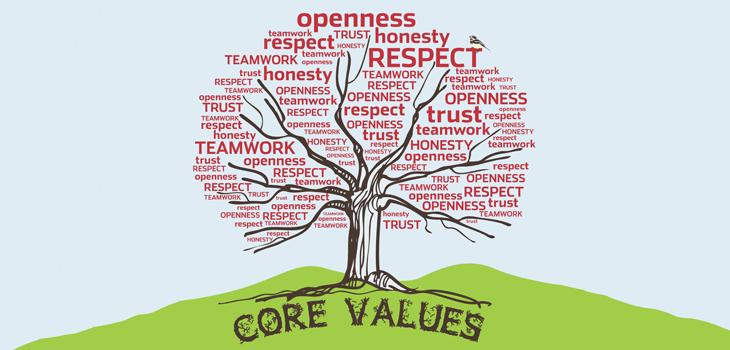By Brian Dorans
‘Cultural Fit’ is a term that’s frequently used in the talent acquisition process. When hiring new talent, an organisation clearly needs to see a strong skills, experience and competencies fit between the candidate and the open position, but that ‘cultural fit’ piece is vital to the success of a new hire.
As a concept, cultural fit can be hard to define, but it needs to be taken into account to prevent future problems where there is no candidate alignment with a company’s culture. Think of a new hire who needs constant direction and likes to be given set work tasks – they will not be comfortable in an organisation that promotes employee empowerment, personal accountability and free thinking. Similarly, a senior leader whose style is to manage through ‘command and control’ will not thrive in an organisation where employees are used to contributing to decisions with their opinions being taken fully into account.
Any recruitment process which assesses new hires focusing only on skills, experience and competencies is no longer enough as companies try to hire and retain the best talent available. Ticking the boxes on a job specification that covers a list of duties and responsibilities is a necessary starting point, but even a 100% match here will not ensure that the new hire will be successful.
Some key questions often asked as a measure of likely success in the new hire are; Will they thrive in our environment? Will they follow our preferred way of working? Will they be happy and perform well in their role? Will they integrate well into the team? Will they lead and manage a team effectively to ensure our continued success? etc.
In essence – are the individual’s values perceived to be the same as the company’s? The concept of ‘values-based’ hiring is not new, but it’s continually gaining momentum and looking for ‘shared values’ in the talent acquisition process can significantly de-risk the potential for a new hire not working out. In Executive and Senior Managerial hires, this values-based cultural fit can be crucial as these leaders are the company’s standard bearers.
It has often been said that a company’s values define its brand. It does make sense therefore that if a brand is successful, there is a real desire for businesses to identify the values that makes their organisations successful and different, and then replicate these in new hires. (Interestingly, failing companies can seek a change of culture in new hires; e.g. – where have we gone wrong and what values do we need to instill to be successful?).
How can you begin to quantify this cultural fit, and then assess and measure what this ‘fit’ is in relation to a person’s values? The first step must be to determine and clearly define the values of the organisation, which can then become the standards against which candidates are compared. Engaging a broad cross-section of stakeholders within the company to help define and refine these values makes sense. As much time as possible should be spent on this to help really establish what makes their company unique. Some companies have spent a significant amount of time here to come up with value statements.
Take Virgin for example, they have at least 18 values based statements on their website, here are just three:
- Insatiable Curiosity: We’re always restless, always curious. We want to know what makes people tick and constantly ask ‘what if?’ and ‘why the hell not?’
- Give your all: You’re not a settler. You’ll question the norm. And you’ll jump at the chance to try new ways of doing things better – for your customers, your colleagues and the business.
- Straight Up: We play it straight. Honest and decent, we want to do the right thing for the customer and believe that what is good for profit can be good for people and the world we live in.
Other firms break these into simpler core values like EY who look for:
- People who demonstrate integrity, respect, and teaming.
- People with energy, enthusiasm, and the courage to lead.
- People who build relationships based on doing the right thing.
Once the organisation’s values and culture are clarified internally, they can be made transparent throughout the hiring process.
To bring an extra layer of objectivity in to help identify values in new hires, a range of psychometric personality tests can be utilised which highlight an individual’s traits, work preferences, preferred work culture and key motivators – all of these will help to identify shared values. Other tests used can be ‘Situational Judgment Tests’ (SJTs) where prospective hires are questioned on what they might do and how they might act or behave in certain defined work scenarios. Again these help ascertain how new hires might act in line with a company’s values – a person’s behaviour and actions are predominantly underpinned by their values.
Although these tests can be viewed as an additional step in an already complex hiring process, they can however provide insight by introducing objectivity and reducing bias when administered properly. These tests can help balance and align stakeholders’ own views of potential hires, as bringing their own differing subjective opinions into the hiring process is inevitable – it’s very difficult not to view an individual through one’s own lens.
It should be clear that these tests are an add-on to the talent acquisition process, to be used alongside all the typical screening and face-to-face meetings, and other processes in the talent acquisition cycle. Values don’t necessarily predict task performance, so organisations should not assess values to the to the exclusion of other key criteria.
Looking for shared values in your hiring process can help improve many different aspects of talent acquisition and help ensure the new hire is likely to be a good ‘cultural fit’ and thrive within the organisation.
____

Brian Dorans, Principal Assessment Consultant is qualified to Level A and B in Occupational Psychometric testing through the British Psychological Society (BPS), and is a member of the European Federation of Psychologists’ Association (EFPA), the leading professional body in the EU.
Brian is also a Certified Saville Wave® Practitioner and can administer the full suite of Saville Wave Psychometric Assessments.
For more on Psychometric Assessment get in touch with us today or call +44 845 862 0186





